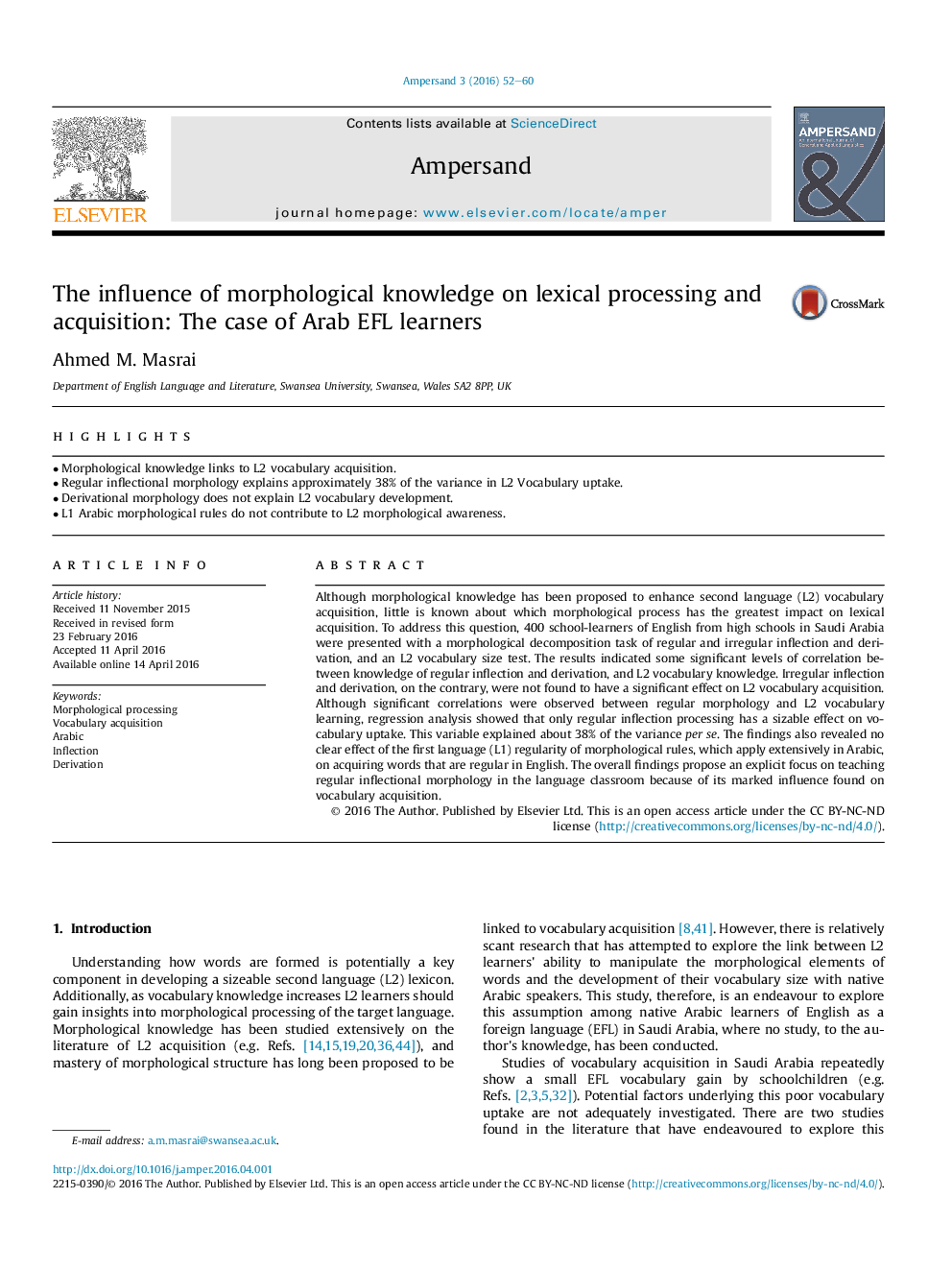| کد مقاله | کد نشریه | سال انتشار | مقاله انگلیسی | نسخه تمام متن |
|---|---|---|---|---|
| 1100458 | 1488055 | 2016 | 9 صفحه PDF | دانلود رایگان |
• Morphological knowledge links to L2 vocabulary acquisition.
• Regular inflectional morphology explains approximately 38% of the variance in L2 Vocabulary uptake.
• Derivational morphology does not explain L2 vocabulary development.
• L1 Arabic morphological rules do not contribute to L2 morphological awareness.
Although morphological knowledge has been proposed to enhance second language (L2) vocabulary acquisition, little is known about which morphological process has the greatest impact on lexical acquisition. To address this question, 400 school-learners of English from high schools in Saudi Arabia were presented with a morphological decomposition task of regular and irregular inflection and derivation, and an L2 vocabulary size test. The results indicated some significant levels of correlation between knowledge of regular inflection and derivation, and L2 vocabulary knowledge. Irregular inflection and derivation, on the contrary, were not found to have a significant effect on L2 vocabulary acquisition. Although significant correlations were observed between regular morphology and L2 vocabulary learning, regression analysis showed that only regular inflection processing has a sizable effect on vocabulary uptake. This variable explained about 38% of the variance per se. The findings also revealed no clear effect of the first language (L1) regularity of morphological rules, which apply extensively in Arabic, on acquiring words that are regular in English. The overall findings propose an explicit focus on teaching regular inflectional morphology in the language classroom because of its marked influence found on vocabulary acquisition.
Journal: Ampersand - Volume 3, 2016, Pages 52–60
